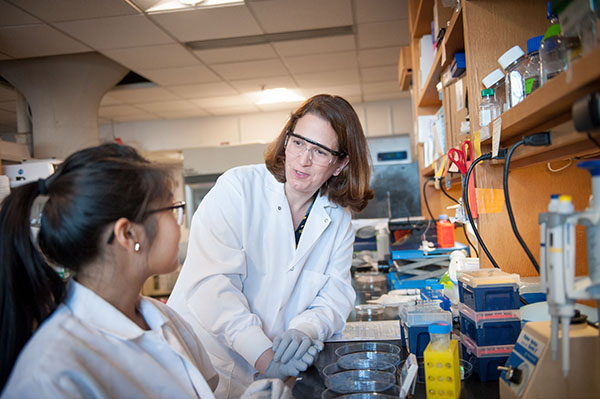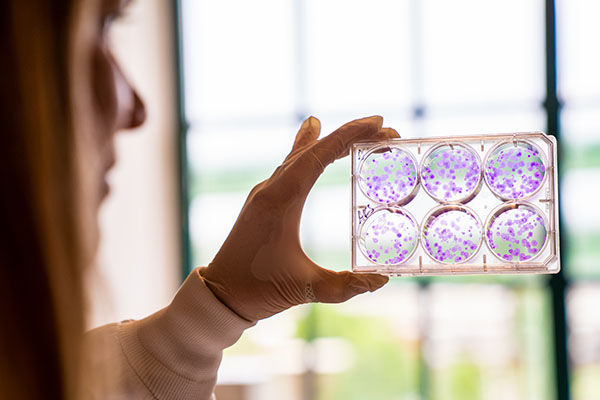Mass General Cancer Center Announces First Recipients of Krantz Awards for Cancer Research
The inaugural class of awardees will receive more than $6 million in funding to accelerate groundbreaking cancer research.
The Krantz Family Center for Cancer Research is the scientific engine driving basic and translational research at the Mass General Cancer Center. Through scientific innovation and a multidisciplinary environment, we strive for global impact on the treatment, early diagnosis, and prevention of all forms of cancer. We are committed to teaching and training the next generation of cancer researchers, within a multidisciplinary collegial and collaborative research community.
The unique strength of the Krantz Center is the manner in which the Krantz Center’s basic scientists collaborate with Mass General Cancer Center's leading oncologists and other physicians and medical professionals to meet the complex challenges presented by human cancer. At Mass General—one of the world’s most distinguished academic medical centers—the transfer of knowledge from basic research to clinical practice can happen in a matter of months, rather than the years required in many other settings.

See examples of key scientific discoveries made by our investigators that have substantially changed the way physicians understand and treat cancer.
The Krantz Center greatly values creativity and innovation across multiple disciplines of cancer research, and we are proud of our strong culture of collaboration and collegiality, demonstrated by multiple co-authored manuscripts, joint laboratory meetings, and cross-laboratory team science.
We are dedicated to training and mentoring the next generation of young scientists who will continue to harness the power of science and uncover new and more effective ways to fight cancer. Learn how we foster success in Krantz Family Center for Cancer Research trainees through the SUCCrEED Program.
The Krantz Center includes over 50 Principal Investigators with Harvard Medical School appointments in the Departments of Medicine, Pathology, Radiation Oncology, Surgery, Dermatology and Pediatrics, as well as the Broad Institute of MIT and Harvard. Together with over 500 laboratory investigators, they conduct research in 80,000 square feet of laboratory space in three Massachusetts General Hospital research facilities: Charlestown Navy Yard, Simches Research Building, and Jackson Building. Ongoing research projects range from exploring cancer genetics, genomics, epigenetics and proteomics, to developmental biology, cell signaling, cancer diagnostics, molecular therapeutics and drug resistance, immunology and immunotherapy, cellular metabolism, cell cycle regulation, RNA biology, and computational biology.
Our investigators actively pursue fundamental questions in cancer biology, together with translational applications with potential clinical impact. Major areas of emphasis include:

Beyond these highlights, all Krantz Center faculty pursue their scientific vision. Meet our faculty.
Learn how a transformative gift from philanthropists Jason and Keely Krantz is about to revolutionize cancer research at the Mass General Cancer Center.
When you support us you are enabling discoveries that will lead to effective new weapons in the battle against cancer.
The inaugural class of awardees will receive more than $6 million in funding to accelerate groundbreaking cancer research.
The newly named Krantz Family Center for Cancer Research will empower Mass General Cancer Center researchers to tackle the major unsolved challenges in oncology.
The inaugural class of awardees will receive more than $6 million in funding to accelerate groundbreaking cancer research.
The newly named Krantz Family Center for Cancer Research will empower Mass General Cancer Center researchers to tackle the major unsolved challenges in oncology.
The inaugural class of awardees will receive more than $6 million in funding to accelerate groundbreaking cancer research.
The newly named Krantz Family Center for Cancer Research will empower Mass General Cancer Center researchers to tackle the major unsolved challenges in oncology.
The Krantz Family Center for Cancer Research is the scientific engine driving basic and translational research at the Mass General Cancer Center.